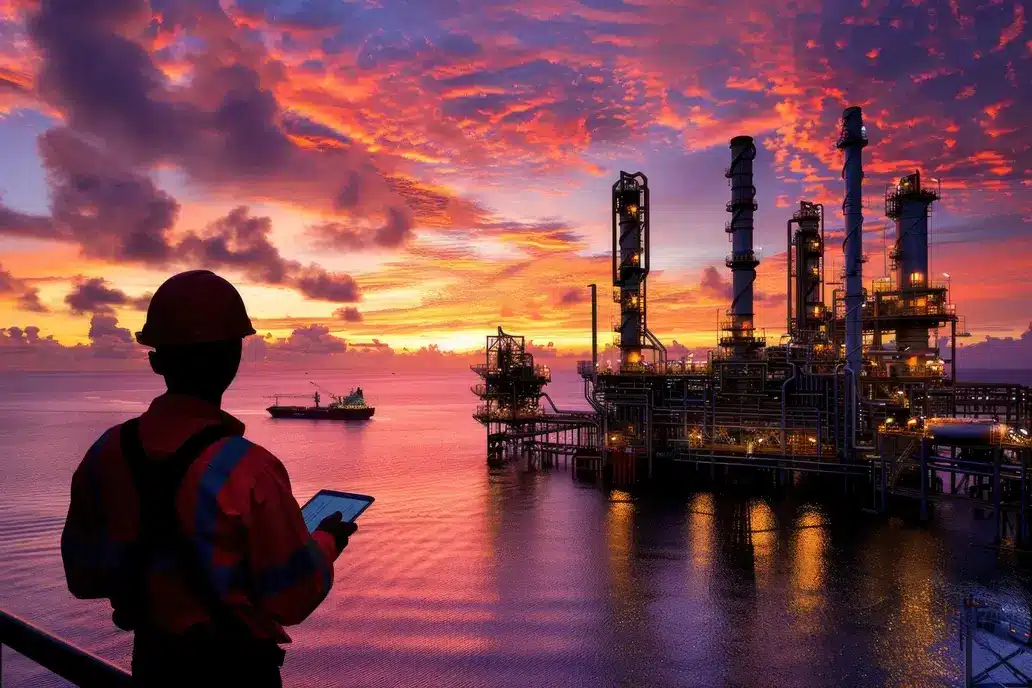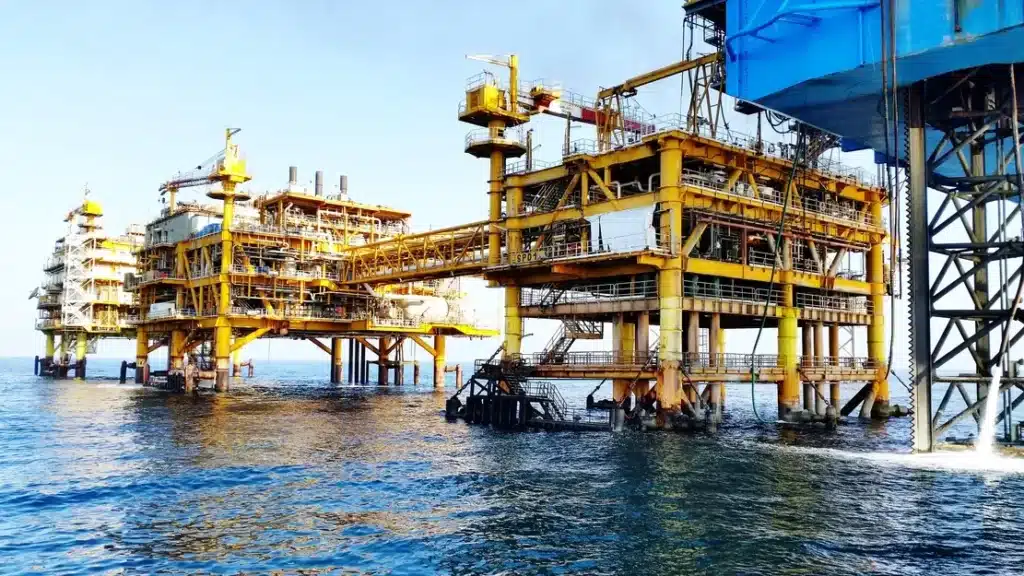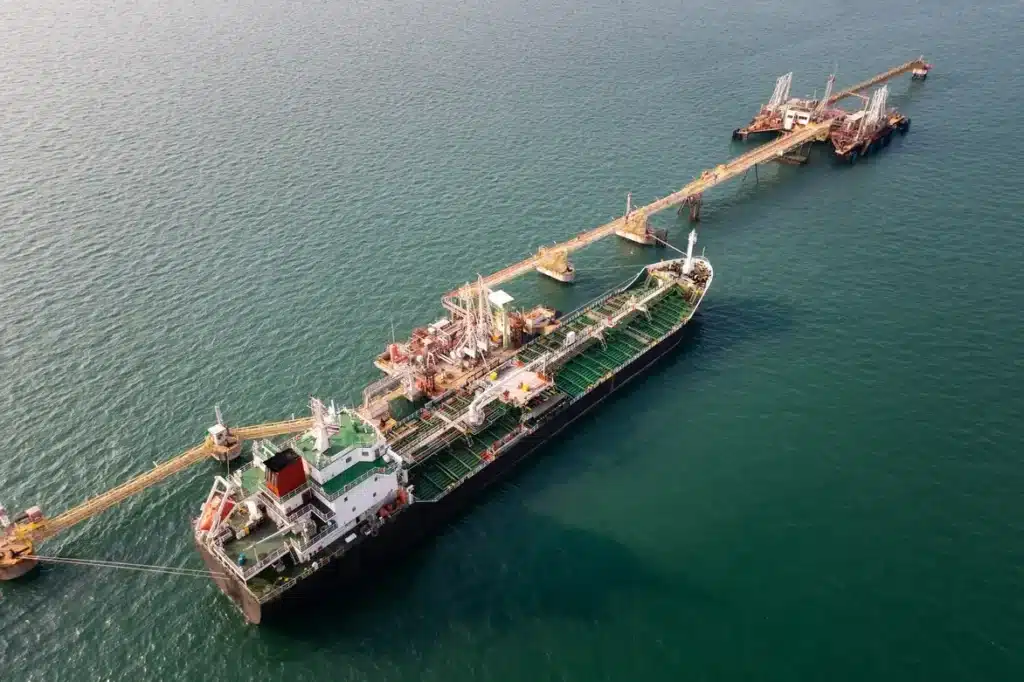Indonesia’s Cabotage Rule Reaffirmed: Legal Certainty for Foreign Vessel Use in Offshore Petroleum and Energy Operations

Law 66/2024 reaffirms Indonesia’s cabotage principle, strengthening licensing requirements for maritime transport while maintaining a key exception allowing the use of foreign-flagged vessels for specific offshore activities when Indonesian-flagged vessels are unavailable. This continuity is crucial for oil and energy projects, which often rely on floating units such as FPSOs and FSRUs that cannot yet be sourced domestically. While this exception provides legal certainty, operators must comply with the PPKA mechanism under Permenhub 2/2021, which involves rigorous documentation and the participation of national shipping companies.
The cabotage principle under Indonesian shipping law mandates that domestic sea transportation be exclusively conducted by national vessels operated by national shipping companies. This principle is affirmed under Law Number 17 of 2008 on Shipping (“Shipping Law”), as most recently amended by Law Number 66 of 2024 on the Third Amendment to Law Number 17 of 2008 on Shipping (“Law 66/2024”).
However, the law continues to permit the use of foreign-flagged vessels for specific offshore activities, provided that Indonesian-flagged vessels are not yet available to perform the intended function.1 This exception is further elaborated under Minister of Transportation Regulation Number PM 2 of 2021 on Procedures and Requirements for Granting Approval for the Use of Foreign Vessels for Activities in Indonesian Waters other than the Carriage of Passengers and Goods (“MOTR 2/2021”). The regulation outlines eligible activities, including oil and gas surveys, drilling, and the use of floating units such as Floating Production Storage and Offloading (“FPSO”), Floating Storage and Regasification Unit (“FSRU”), and other offshore support vessels.2
Importantly, the 2024 amendment to the Shipping Law does not revoke or alter this exception. This means that the oil and gas sector, being one of the industries most reliant on specialized vessels to support offshore operations, can continue to use foreign-flagged vessels through the Approval for the Use of Foreign Vessels (Persetujuan Penggunaan Kapal Asing or “PPKA”) mechanism.3 This continuity provides legal certainty for oil and gas contractors and offshore operators, ensuring that their operational needs remain accommodated within Indonesia’s regulatory framework.

Read More: What Do the New Cooperation Schemes in MEMR 14/2025 Mean for Oil and Gas Stakeholders?
Recent Amendments to the Shipping Law: What Businesses Need to Know
Law 66/2024 introduces several notable changes to Indonesia’s Shipping Law, with direct implications for offshore operations. For businesses – especially those in the petroleum and energy sectors – two key updates stand out.
- Licensing Requirements Now Explicit for Offshore Activities
While Shipping Law has long required sea transportation companies to hold business licenses, earlier provisions were broad and did not expressly cover specialized offshore activities such as offshore oil and gas support services. These activities were primarily regulated under MOTR 2/2021.
The 2024 amendment closes the gap by explicitly mandating that special sea transportation activities fall under business licenses issued by the Central Government4, in line with the post-Omnibus Law risk-based licensing system (OSS RBA). This clarification eliminates any ambiguity as to whether PPKA alone is sufficient, and confirms that offshore operators engaging in offshore shipping must also secure a business license for their specialized shipping activities. - Cabotage Principle Reaffirmed, with Key Exceptions Preserved
Law 66/2024 reinforces Indonesia’s longstanding cabotage principle, which requires that domestic sea transportation be exclusively carried out by Indonesian-flagged vessels operated by Indonesian crews. The law also maintains the prohibition against foreign-flagged vessels transporting passengers or goods between domestic ports.
Crucially, however, the amendment does not eliminate the exception for specific offshore activities. The law continues to allow foreign-flagged vessels to operate in Indonesian waters for designated purposes, such as offshore energy operations, provided that no Indonesian-flagged vessels are available and the activities do not involve the carriage of passengers or goods. This ensures that industries reliant on specialized vessels, including those in the petroleum and energy sectors, can maintain operational continuity under the existing legal framework.
Foreign-Flagged Vessel Exemptions: Legal Pathways for Offshore Petroleum and Energy Operations
Through Law 66/2024, the Indonesian Government reaffirms Indonesia’s commitment to the cabotage principle by maintaining the prohibition against foreign-flagged vessels transporting passengers or goods between domestic ports. However, following the 2024 amendment, the provision on foreign vessel exemptions remains in force, meaning that foreign-flagged vessels may still be deployed for certain offshore activities in Indonesian waters, such as those serving as production platforms, storage hubs, and regasification terminals, provided that no Indonesian-flagged vessels are available for the intended purposes. These are capabilities that the domestic shipping industry has yet to fully develop, making the exemption especially critical for petroleum and energy operations.
This continuity is especially important for offshore petroleum and energy operations, which often rely on highly specialized floating units, such as FPSOs and FSRUs. These vessels function as production platforms, storage hubs, and regasification terminals – capabilities that the domestic shipping industry has yet to fully develop. The preserved exemption ensures that contractors and operators can continue to legally utilize foreign-flagged vessels to support complex offshore projects.
That said, this exemption is not automatic. It is further reinforced and regulated under MOTR 2/2021, which outlines the procedures and requirement for obtaining a PPKA. A PPKA may only be granted if the unavailability of Indonesian-flagged vessels is proven through supporting documents such as a work plan, project contract, charter agreement, and other technical documents.5 Before a foreign-flagged vessel may enter or operate in Indonesian waters fo designated offshore activities, the project owners must obtain a PPKA from the Ministry of Transportation.6
MOTR 2/2021 also provides a list of activities eligible for the use of foreign-flagged vessels. Among these are oil and gas surveys, drilling, offshore construction, and “offshore support operations”7, a category that in practice includes FPSOs, FSRUs, and FPSUs. Although MOTR 2/2021 does not explicitly mention FPSOs or FSRUs, in practice, they are widely recognized as falling within the scope of offshore support operations under Appendix I, item 6 of MOTR 2/2021.
In practice, the use of foreign-flagged FPSOs and FSRUs inevitably involves several legal and administrative layers: (i) objective evidence demonstrating the unavailability of Indonesian-flagged vessels, (ii) the involvement of a national shipping company as the licensed operator, (iii) comprehensive technical documentation, and (iv) fulfilment of additional obligations such as accommodating Indonesian maritime cadets for onboard training. These requirements introduce not only regulatory complexity but also financial and contractual implications that must be carefully addressed during project planning and negotiations.

Read More: Energy Transition in the Power Sector: Key Highlights from MEMR Regulation 10/2025
Conclusion
Law 66/2024 strengthens Indonesia’s regulatory framework by reaffirming the cabotage principle and tightening licensing requirements for sea transportation activities. Crucially, however, it preserves the core exemption that allows the use of foreign-flagged vessels for specialized offshore operations – particularly in the petroleum and energy sectors. For businesses, particularly contractors and offshore operators, this legal certainty ensures continued access to critical floating units such as FPSOs, FSRUs, and FPSUs. However, this access remains conditional upon strict compliance with the PPKA mechanism and the formal involvement of national shipping companies. Businesses must navigate these regulatory layers carefully to ensure operational continuity and legal compliance in offshore projects.
To gain deeper insights into the implications of these regulations for oil and gas project development, you may contact our Project Development Practice Group at ADCO Law.
***
About ADCO Law:
ADCO Law is a law firm that offers clients a wide range of integrated legal services, including commercial transactions and corporate disputes in a variety of industry sectors. Over the course of more than a decade, we have grown to understand our clients’ industries and businesses as well as the regulatory aspects. In dealing with business dynamics, we provide comprehensive, solid legal advice and solutions to minimize legal and business risks.
From Upstream to Downstream, We Understand Your Industry. In complex transactions and certain cases, we actively engage with financial, tax, and environmental specialists, accountants, and law firms from various jurisdictions to add value to our clients. Our strong relationships with Government agencies, regulators, associations, and industry stakeholders ensure that our firm has a holistic view of legal matters.
ADCO Law is a Proud Member of the Alliott Global Alliance (AGA) in Indonesia. Founded in 1979, AGA is one of the largest and fastest-growing global multidisciplinary alliances, with 215 member firms in 95 countries. As a law firm, we also believe in regeneration. To stay abreast of business changes and stay relevant, our formation of lawyers is comprised of the top graduates from Indonesian and international law schools.

